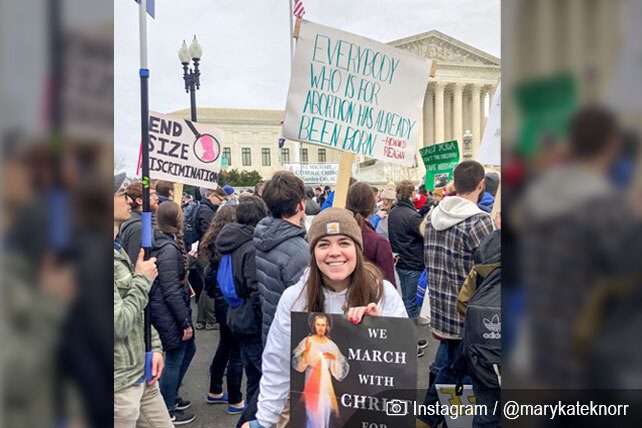In an unsigned 5-4 ruling late Wednesday, the U.S. Supreme Court voted not to block a Texas abortion law that effectively bans most abortions in the state. The ruling doesn’t address the constitutionality of the law, which represents the tightest restrictions on abortion since the landmark 1973 Roe v. Wade decision.
The Texas law, which Gov. Greg Abbott signed in May, bans abortion after a fetal heartbeat can be detected, usually at about six weeks, before most women even know they’re pregnant. The ban’s unusual enforcement provision, which grants power to civilian whistleblowers, intentionally makes court challenges difficult.
Texas Abortion Law: Pro-Lifers Declare Victory
After the ruling was announced, many pro-life advocates and Christian leaders expressed joy and relief, calling it a major win. “What an amazing victory!” tweeted Abby Johnson, the subject of the anti-abortion movie “Unplanned.” “Babies win! Life wins!” The pro-life organization Live Action calls the ruling “a monumental, encouraging step forward for human rights!”
Outreach Magazine editor-in-chief Ed Stetzer tweets: “Today is a safer day to be an unborn child in Texas” and “It’s time to overturn Roe v Wade. It’s bad law, bad for the unborn, & bad for women. Justice matters.”
Southern Baptist Convention President Ed Litton calls the Supreme Court’s refusal to intervene “such an encouraging development” but warns “the fight for life is by no means finished.” And Southern Baptist theologian Al Mohler describes the ruling as “a milestone in the battle for life” and a “massive” development that has left abortion advocates in “shock.”
With the Supreme Court’s new conservative majority, Wednesday’s ruling is raising hopes—and concerns—that Roe v. Wade is in jeopardy.
How the Justices Ruled on the Texas Abortion Law
All three justices appointed by former President Trump (Neil Gorsuch, Brett Kavanaugh, and Amy Coney Barrett) voted in the majority, joined by Clarence Thomas and Samuel Alito. Joining the three liberal dissenters (Stephen Breyer, Elena Kagan, and Sonia Sotomayor) was Chief Justice John Roberts, who says lower courts need more time to determine if “a state can avoid responsibility for its laws” by delegating enforcement to citizens.
The most harshly worded dissent came from Sotomayor, who (along with Breyer) omitted the customary modifier “respectfully” between the words “I dissent.” Calling the Texas abortion law a “breathtaking act of defiance,” Sotomayor accuses the majority of opting to “bury their heads in the sand.” By failing to block the abortion ban, she writes, SCOTUS “rewards tactics designed to avoid judicial review and inflicts significant harm on…women seeking abortions in Texas.”
In her dissent, Justice Kagan emphasizes a woman’s “federal constitutional right to obtain an abortion during that first stage” of pregnancy. But as Mohler points out, that “artificial right” was “invented” through the Roe ruling, and “every single precedent stands until it doesn’t.”

